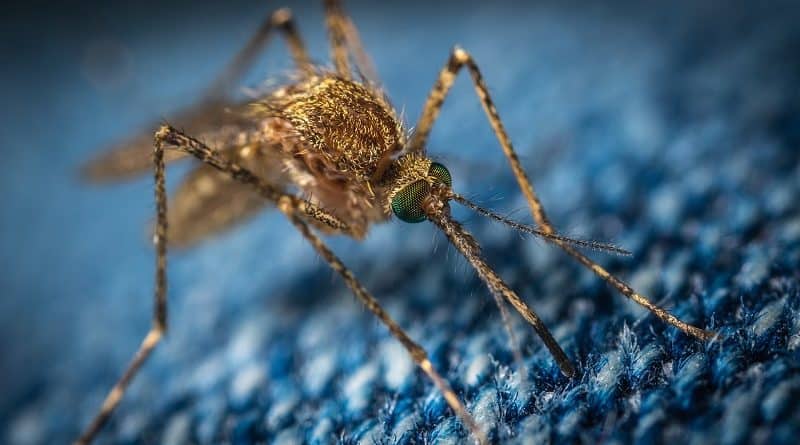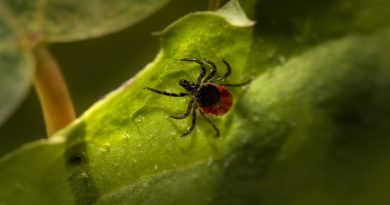Need to Know: Where Do Mosquitoes Go in the Winter?
I love to hike in the winter, if only because I’m not having to constantly swat away insects. I do wonder though, where do mosquitoes go in the winter?
One day I’m slathering my arms and neck with Sawyer’s Picaridin insect repellent. The next day, all the gnats, mosquitoes and black flies are gone.
I’m not desperate to know where they’ve gone, but I am curious. Honestly, I just want to know how long I will be able to enjoy mosquito-free hiking trails?
While the mosquito control services are waiting for these pests to return, let’s go over some basics ahead of the return of the mosquitoes in the spring.
Where Do Mosquitoes Come From?
Mosquitoes live and breed in standing freshwater, like ponds and marshes. Any kind of stagnant freshwater is a good breeding ground, really.
Empty flower pots, deep puddles, hollow stumps, loose tarps. Anything that can collect rainwater can be an ideal place for female mosquitoes to lay eggs.
Rain brings out the mosquitoes, too. As in, get ready for a baby boom. Rain leads to lots of standing water for females to lay eggs.
In as little as a week, these eggs can hatch and a new generation of mosquitoes are on the move, in search of victims to nibble on.
How Long Do Mosquitoes Live?
Female mosquitoes typically live from two to six weeks. However, they can live up to six months. Male mosquitoes live for about 10 to 14 days.
Only the female mosquitoes bite humans. They need proteins found in human blood to help their eggs grow and develop.
Female mosquitoes will bite as many humans as it takes to fill up with the proteins and iron they need to nourish and lay their eggs.
Once a female is full, she will rest for a few days, then lay her eggs. After she has laid her eggs she will be ready to bite more humans.
How Do Mosquitoes Survive Winter?
Like snakes, mosquitoes are less active or inactive in winter. Once the temperature drops below 50 degrees, they seek out burrows and hollow logs.
Also like snakes, mosquitoes are cold-blooded animals. In fact, all insects are cold-blooded. When it gets cold, insects become sluggish and lethargic.
Essentially, in order to survive the winter, mosquitoes will hibernate. They wait it out tucked away in holes and burrows until it’s warm enough to emerge.
It’s a common misconception that all mosquitoes simply die when it gets too cold. Some mosquitoes even lay a batch of eggs at the start of winter.
The new eggs enter diapause, a state that halts their development in winter. Once the weather warms, the eggs hatch the next generation of mosquitoes.
When Do Mosquitoes Go Away?
Once the weather cools and is consistently 60 degrees, mosquitoes begin to make final preparations for the cold weather months.
The females lay their last batches of eggs. These cold-blooded insects seek out animal burrows and holes in logs to hibernate for the season.
It’s safe to say that mosquito season is officially over with the first freeze of winter. This is a key marker as are steady daily temperatures of 50 degrees.
Most mosquitoes become dormant with winter weather, but don’t be surprised to see a mosquito or two pop out to say hello on a warm winter day.
When Do Mosquitoes Come Out?
Just as we all want to know, when will mosquitoes be gone for good for the season, we also want to know, when will they be back?
Mosquitoes begin to re-emerge in March and April, once the temperatures are warm enough for them to survive. So, higher than 50 degrees every day.
Thanks to warm, humid weather in summer, this is when mosquito season peaks. Pop-up rain showers create plentiful breeding grounds for mosquitoes.
AccuWeather has a “mosquito” tab that can let you know how weather conditions over the next two days will impact local mosquito activity.
How Do Mosquitoes Find You?
Mosquitoes are just attracted to hikers. Well, they kind of are, but I can help you with more specifics.
Female mosquitoes (you know, the ones that bite) can sense carbon dioxide (when we exhale), as well as the heat, moisture and odor of our bodies.
When we sweat and breathe heavily while out on the hiking trails, we’re essentially sending out a beacon to alert mosquitoes to our presence.
This is one reason you may not notice mosquitoes when you first start hiking, but then all of a sudden, they are all over you once you start perspiring.
This is also how mosquitoes find you at night, though the time of day when mosquitoes are active depends largely on the species.
When Are Mosquitoes Most Active?
There are more than 175 mosquito species in the United States. In Virginia, there are around 50 species of pesky mosquitoes.
According to the Virginia Department of Health, the Asian tiger mosquito is the most common biting mosquito, especially in the daytime.
These mosquitos avoid full sun, often waiting in dense forests for humans to come to them. They are wary and prefer to bite ankles and lower legs.
Meanwhile, northern house mosquitoes are commonly seen in the evenings. These mosquitoes are active biters from dusk until dawn.
How Do You Stop Mosquitoes from Biting?
None of us want to get bitten by mosquitoes while out on the hiking trails. Thankfully, there are steps we can take toward prevention.
First, a mosquito repellent is key. I like Sawyer’s Picaridin insect repellent. Apply the repellent to exposed areas, especially legs and ankles.
While mosquitoes are attracted to scents and moisture, they also are enticed by dark colors. Wear light colors, thick fabrics and looser fitting clothing.
You can also make yourself less appealing and susceptible to mosquito bites by wearing scents unappealing to mosquitoes, like lemon eucalyptus.
Interestingly, Bombshell, a top-selling Victoria’s Secret perfume, may reduce bites for two hours. Avon’s Skin So Soft bath oil is another good repellent.

Erin Gifford has completed more than 300 hikes in Virginia. She is also the author of three hiking guidebooks from Falcon Guides. Need help finding a hike? Check out the Trail Finder feature or send Erin an email at [email protected].




